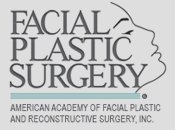Posted November 25, 2008 in Blog, Uncategorized
Recent reports have implicated fillers with adverse events. Once again, it is most often the person injecting the filler, not the actual filler product that is the problem. In response to the U.S. Food and Drug Administration’s (FDA) recent report of side effects linked to injectable wrinkle fillers, the American Academy of Facial Plastic and Reconstructive Surgery (AAFPRS) states that wrinkle fillers appear safe when injected properly, in appropriate areas and after a pre-treatment medical history and physical exam performed by a qualified physician. According to the FDA, some injections that resulted in side effects may have been performed by untrained personnel or in settings other than health clinics or doctors’ offices. The reports, dating back to 2003, document problems experienced by patients including swelling, allergic reactions and infections. The report says that there is not a clear causal link between the products and the side effects, and does not specify which products were involved. The FDA is planning to consult an advisory panel about amending labeling requirements as well as changing the protocol in the way the products are safety-tested. “Cosmetic fillers have a proven safety record when injected by a properly qualified and trained physician in an appropriate medical setting,” said Dr. Donn R. Chatham, president of the AAFPRS. “While injecting dermal fillers is not surgery, it is still a medical procedure that requires the experience of a physician trained in cosmetic procedures of the face. Today’s highly competitive and marketing-driven world has attracted some who have dubious claims of expertise in injecting these drugs and fillers, and patients may be at risk. Patient safety must be paramount.” The AAFPRS reminds patients and professionals that when a patient requests a facial plastic procedure, and entrusts their face to that physician, that it is in their best interests to seek surgeons who are qualified, trained and experienced in performing those procedures. Board certification signifies that a surgeon has achieved a level of education, training and certification of a high level. And that board certification should be in an appropriate specialty. For more information about injectable cosmetic treatments, appropriate injectors and where to safely access related cosmetic medical procedures, please visit www.injectablesafety.org. The AAFPRS cautions that all procedures have the potential for adverse events and complications. Physicians should have a proper medical history of a prospective patient prior to treatment, and patients should be fully informed and educated about every benefit and risk.




